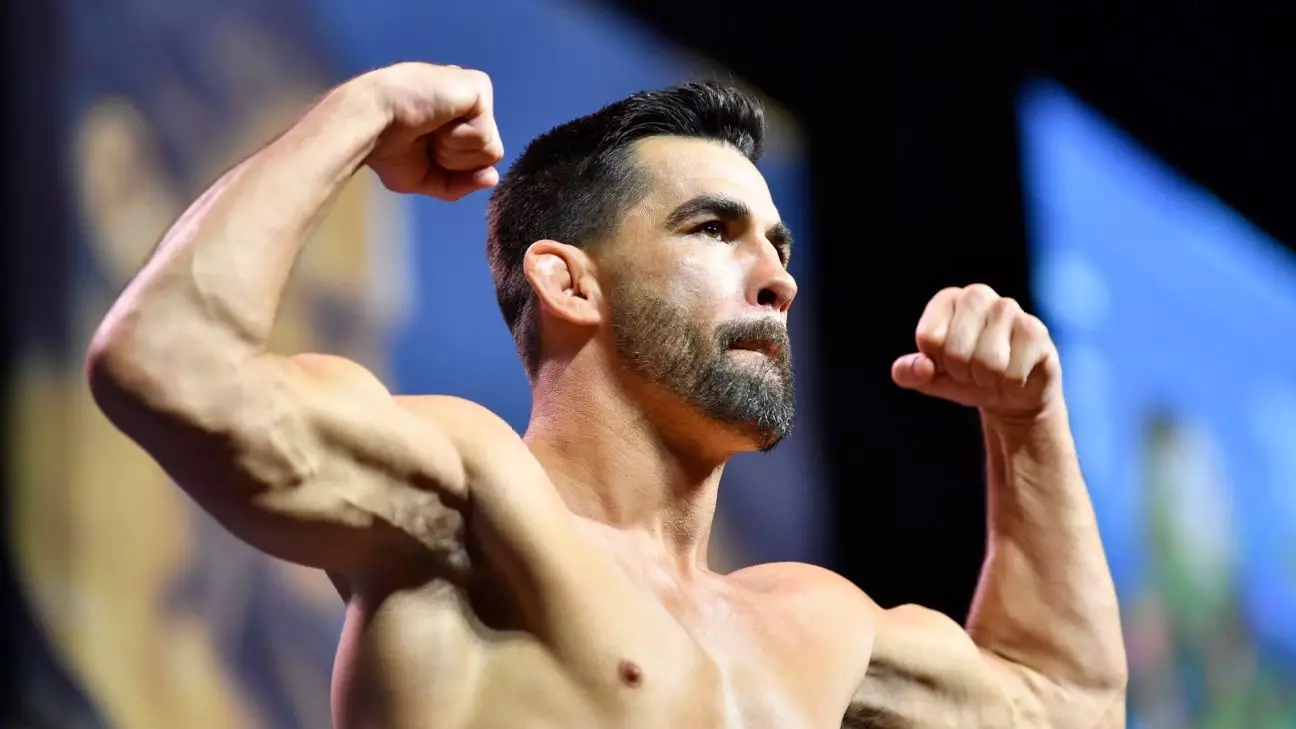On Thursday, the MMA community was met with the somber news of Dominick Cruz’s retirement from professional fighting. At 39 years old, Cruz’s announcement via social media not only highlighted the conclusion of an illustrious career but also reignited discussions about his pivotal role in the evolution of mixed martial arts. Scheduled to face Rob Font in a farewell bout on February 22 at UFC Fight Night, Cruz’s plans were dashed due to recurring shoulder injuries that forced him to withdraw. Holding a professional record of 24-4, his last fight ended in disappointment against Marlon Vera in August 2022, leaving him with a persistent void of unfulfilled aspirations.
Cruz’s fighting style was characterized by an innate ability to blend tactical movement with unpredictable striking, making him a formidable opponent in the octagon. His agility and fight IQ set him apart from his contemporaries, allowing him to maneuver effectively against some of the sport’s top athletes. Known as „The Dominator,“ Cruz’s reign began with his triumph in the WEC’s 135-pound championship in 2010, a landmark achievement that laid the groundwork for his later glory as the UFC’s inaugural bantamweight champion post-merger in 2011.
Throughout his career, Cruz’s journey was not just about victories; it was about resilience. After facing significant hurdles, including multiple injuries that would have ended many fighters‘ careers, his comeback in 2016 to reclaim the bantamweight title is considered a hallmark of determination. This victory, however, was not without its challenges, as he faced a fresh batch of contenders before losing the championship to Cody Garbrandt later that year.
Injuries often dictated Cruz’s professional path, transforming from a mere element of his career into a central theme of his narrative. The recurrent physical setbacks posed constant tests of his mental fortitude, and yet Cruz never succumbed. His heartbreaking TKO loss against Henry Cejudo in 2020, which he claimed was stopped too early, illustrated not just the brutal nature of the sport but also his lingering desire to compete at the highest level—despite physically being at odds with his ambitions.
As he steps away from the spotlight, Cruz leaves behind a legacy that transcends competition. His analysis work with ESPN and as a UFC color commentator has allowed him to share his wealth of knowledge with the next generation of fighters and fans alike. Thus, while Dominick Cruz may no longer compete in the octagon, his influence and insights will likely endure, shaping the landscape of MMA for years to come.
Cruz’s retirement marks not merely an end, but a transition, highlighting a career that has significantly contributed to raising the profile of bantamweight fighters and enriching the MMA community. His story serves as both a source of inspiration and a poignant reminder of the sacrifices inherent in professional sports, ensuring his place in the annals of mixed martial arts history.


Napsat komentář